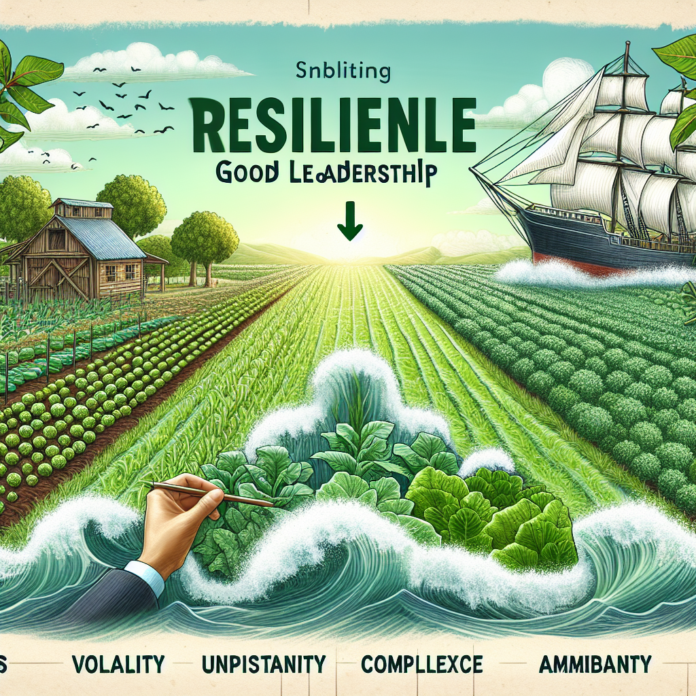Strategic Resilience in Agriculture and VUCA Leadership
Strategic Resilience: Insights from Agriculture for VUCA Leadership
In today’s rapidly changing world, characterized by volatility, uncertainty, complexity, and ambiguity (VUCA), organizations face unprecedented challenges. The agricultural sector, with its deep-rooted history of adaptation and resilience, offers valuable lessons for leaders striving to navigate these turbulent times.
Understanding VUCA
VUCA encapsulates the multifaceted challenges that leaders encounter in modern business environments. Volatility refers to the speed and magnitude of change, uncertainty highlights the unpredictability of events, complexity reflects the intricate interdependencies within systems, and ambiguity signifies the lack of clarity in interpreting information. Together, these factors create a landscape that demands agile and strategic leadership.
Agricultural Resilience: A Case Study
Agriculture has long been a field of innovation and adaptation. Farmers continuously adjust their practices in response to environmental shifts, market demands, and technological advancements. For instance, the rise of climate change has prompted many farmers to adopt sustainable practices, such as crop rotation and the use of cover crops, to maintain soil health and ensure long-term productivity.
These adaptive strategies offer key insights for leaders in any industry. Just as farmers assess weather patterns and market trends, business leaders must develop a keen awareness of external factors that could impact their organizations. This awareness enables proactive decision-making and a more resilient organizational structure.
Building a Culture of Agility
One of the most significant lessons from agriculture is the importance of fostering a culture of agility. In farming, the ability to pivot in response to changing conditions is crucial for survival. Leaders should encourage an agile mindset within their teams, promoting open communication, collaboration, and a willingness to experiment. By creating an environment where employees feel empowered to take risks and innovate, organizations can enhance their adaptability to unforeseen challenges.
Leveraging Technology and Data
The integration of technology in agriculture has revolutionized the industry. From precision farming techniques that utilize data analytics to optimize yield, to the use of drones for monitoring crop health, technology plays a pivotal role in enhancing resilience. Similarly, leaders in various sectors can harness data-driven insights to inform strategic decisions, identify potential risks, and seize opportunities for growth.
Implementing advanced analytics and digital tools can help organizations respond swiftly to market changes, streamline operations, and improve customer experiences, ultimately fostering a more resilient business model.
Collaboration and Community Engagement
Agricultural success often hinges on collaboration—between farmers, suppliers, researchers, and local communities. Building strong relationships and networks can provide critical support during challenging times. Leaders should prioritize collaboration not only within their organizations but also with external stakeholders. Engaging with communities and industry partners can lead to shared knowledge, resources, and innovative solutions that enhance resilience.
Conclusion: Embracing Resilience for Future Success
The lessons from agriculture underscore the importance of strategic resilience in VUCA leadership. By embracing adaptability, fostering a culture of agility, leveraging technology, and promoting collaboration, leaders can better navigate the uncertainties of the modern business landscape. Ultimately, the ability to thrive amidst adversity will distinguish successful organizations in an increasingly complex and unpredictable world.
